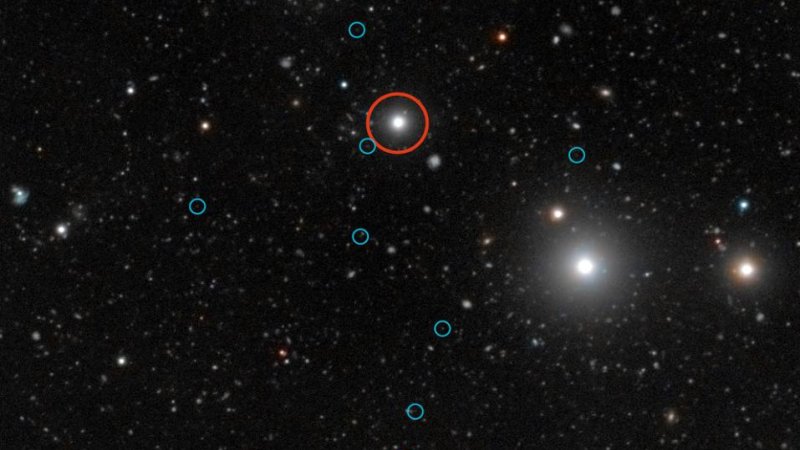OXNARD, Calif., Oct. 30 (UPI) -- Astronomers say they've detected a predicted type of "dark" galaxy devoid of stars and made predominately of dense gas, a U.S. science foundation reports.
The California-based Kavli Foundation says the discovery of dark galaxies, which would normally be unseen against the black backdrop of the universe, sheds light on their role in the evolution of our universe.















